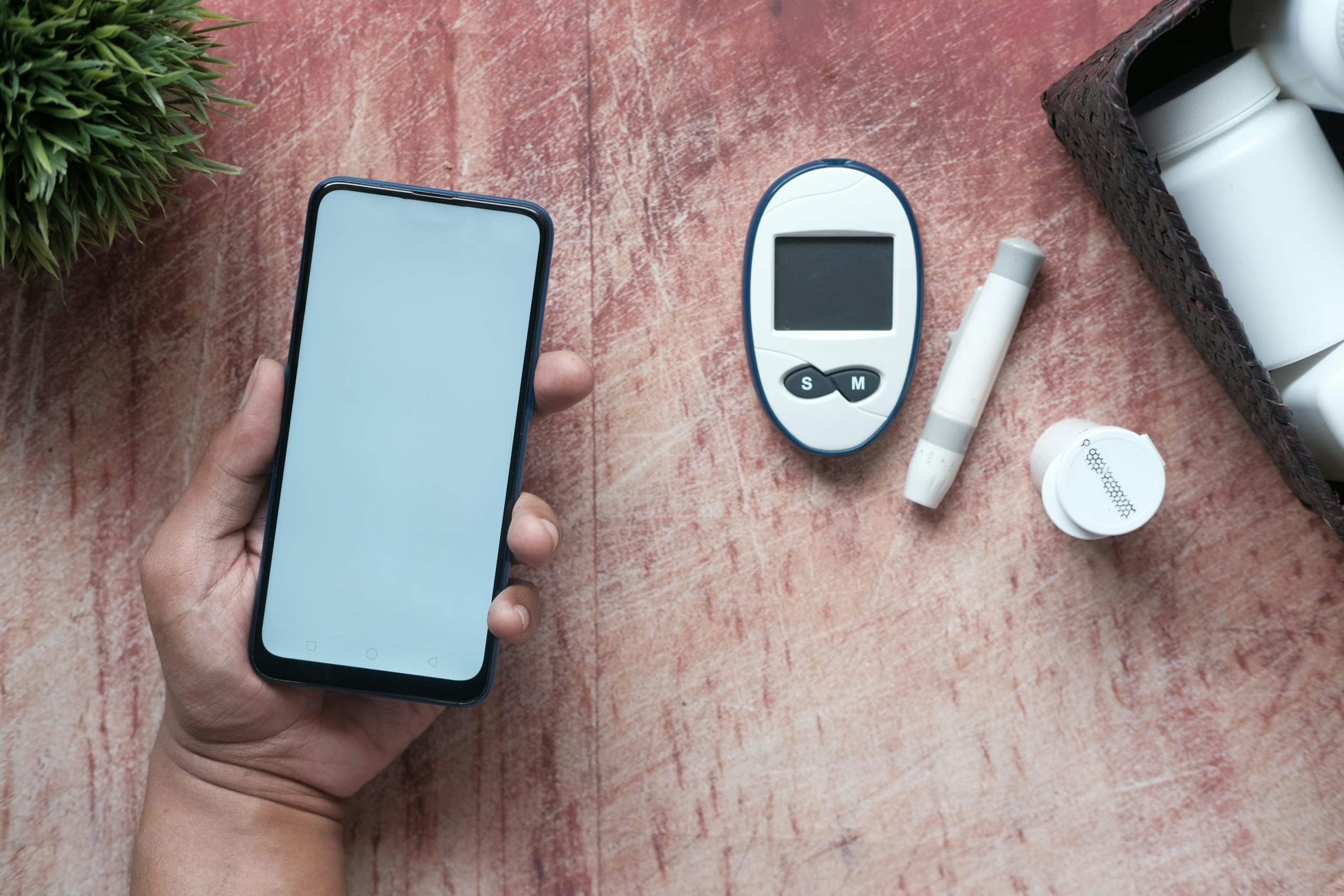In addition to worrying about blood glucose levels, individuals with type 1 diabetes (T1D) are also at greater risk for developing other health conditions such as chronic kidney disease or CKD. This is something that they should be regularly screened for and be aware of potential symptoms.
Advances in artificial intelligence and digital technology may make it easier for individuals with T1D to test for kidney disease from the comfort of their own homes. A current study is underway in the United Kingdom to determine if providing patients with a simple testing kit and using their smartphone’s camera to scan results and transmit them to their healthcare provider. The app may make diagnosing abnormal results easier and allow patients to schedule follow-ups more quickly.
Participants in the study receive a kit that contains a urine dipstick, a container for urine collection, and a color board. After completing the dipstick testing, they hold it up to the color board and take a picture with their smartphone camera. According to the study, “Using AI and colourmetric analysis, the app is able to read the dipstick results equivalent to a lab-based device. Results are then shared instantly with the individual’s GP practice, which can follow up if there is an abnormal result.”
So far, the study has shown high levels of testing participation. Allowing for testing at home expands access and can generate cost savings for laboratories and clinics that no longer have to conduct testing on-site. Many people are not aware of the risks CKD can present, and early detection is critical for treating the disease before it becomes more severe.
The technology was created by Healthy.io and is being tested in partnership with NHSX and the National Institute for Health Research. The team hopes to enroll 500,000 patients over the next three years.
The Diabetes Research Connection (DRC) is excited to see the potential that this technology solution may hold when it comes to detecting CKD in at-risk patients with type 1 diabetes. It may provide yet another line of defense for promoting better health and reducing complications of the disease.
The DRC, though not involved with this study, supports ongoing research related to T1D by providing critical funding to early-career scientists. These novel research studies focus on improving understanding of the disease and enhancing diagnosis, treatment, and management of T1D as well as efforts to find a cure. Learn more about current projects and how to support scientists by visiting http://localhost/drc.
Please DONATE NOW so DRC can keep bringing you credible, peer-reviewed T1D news and research.
Thank you.




